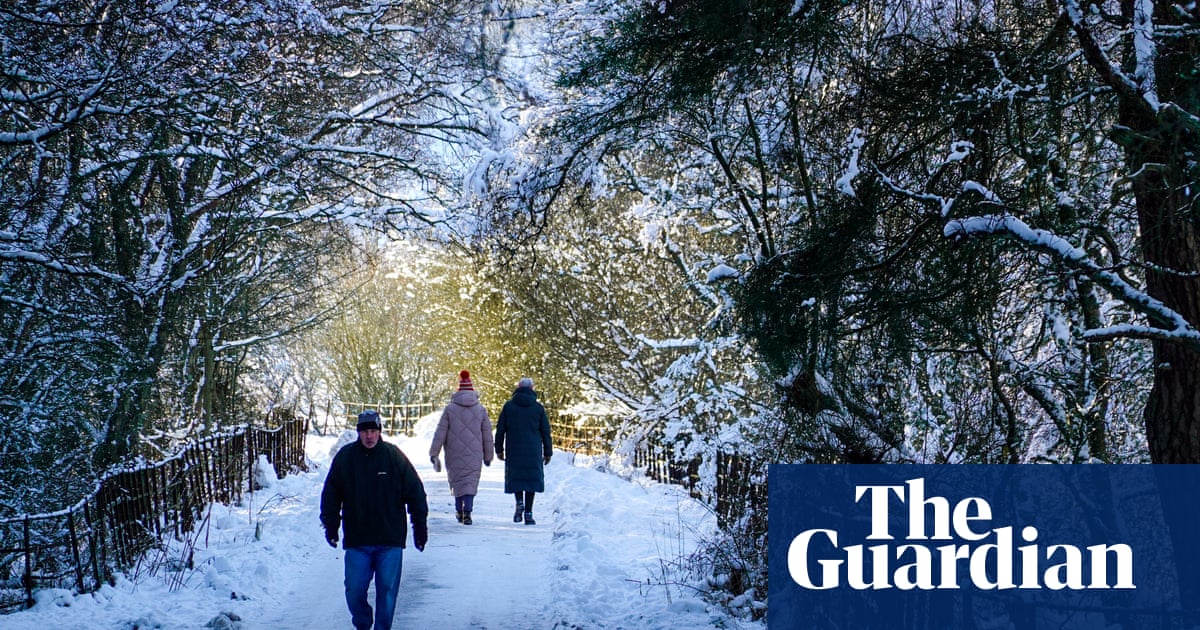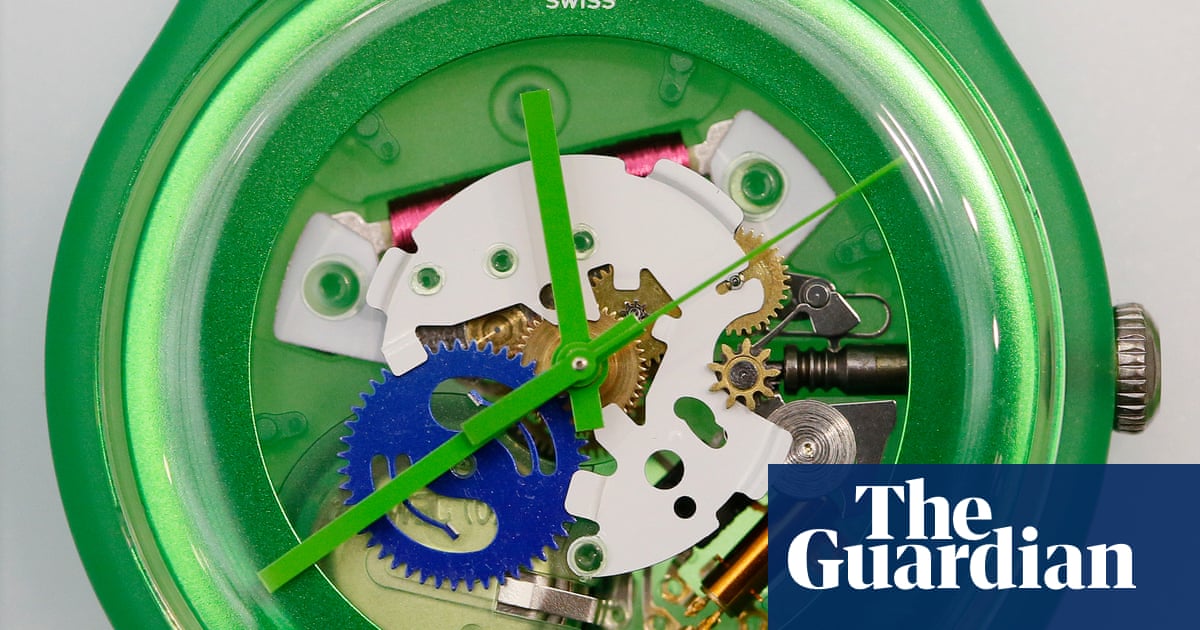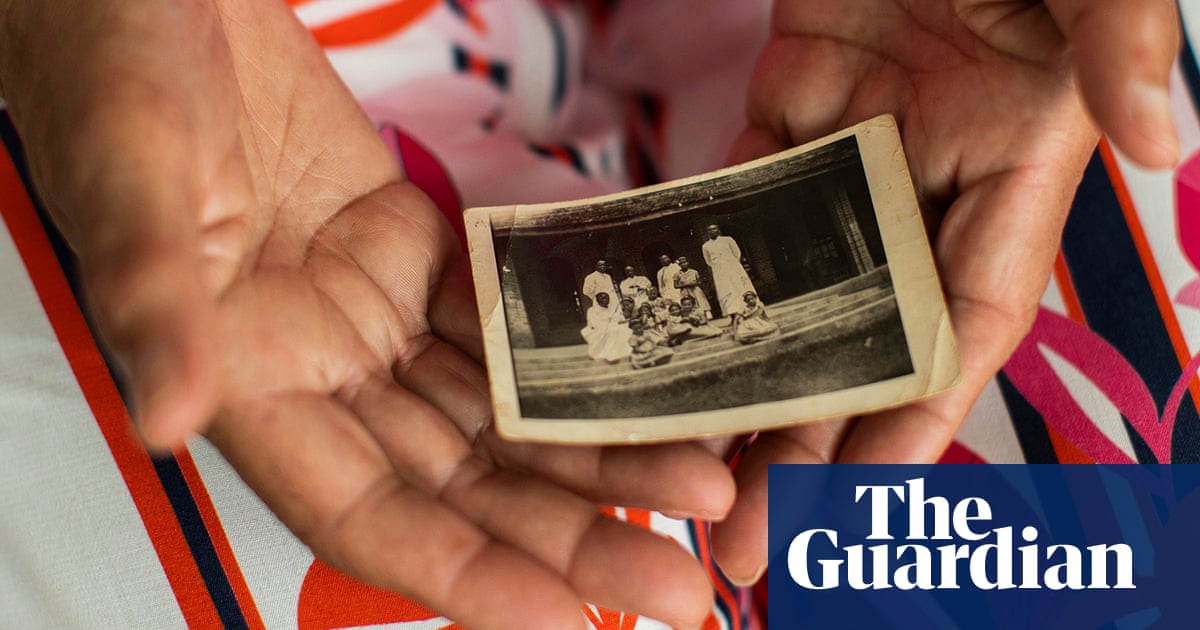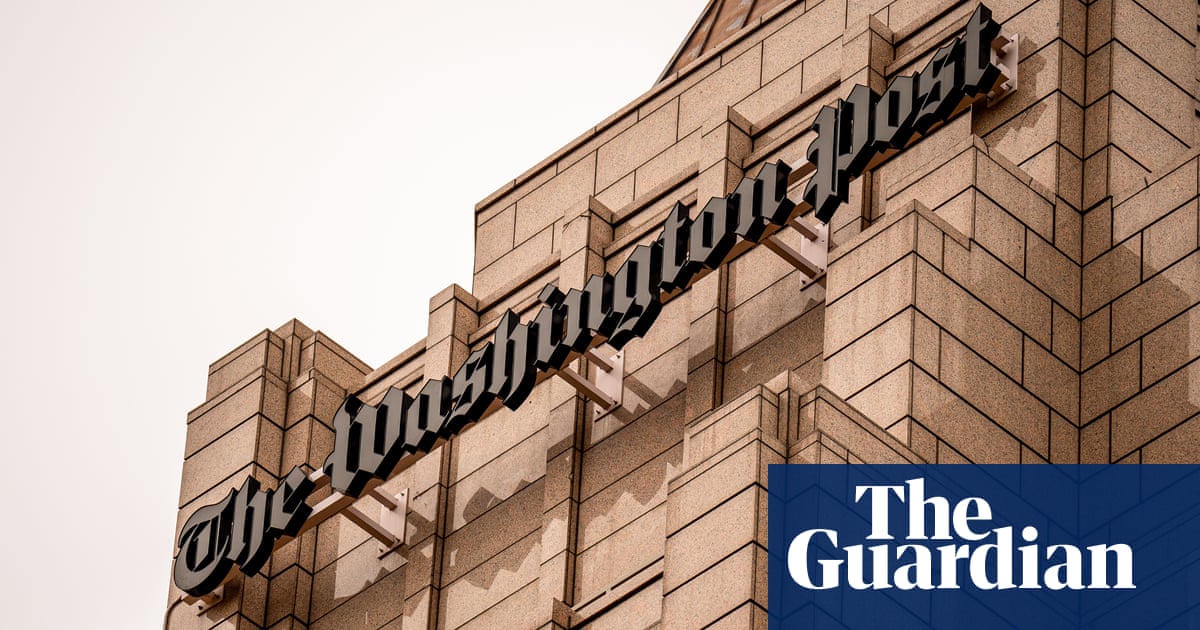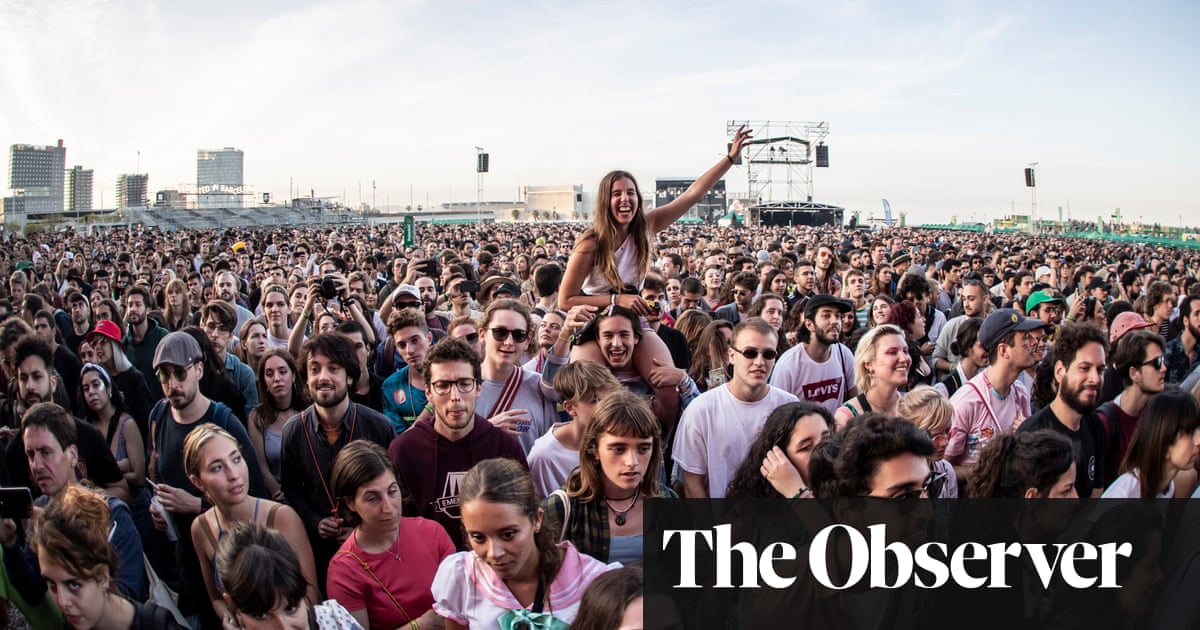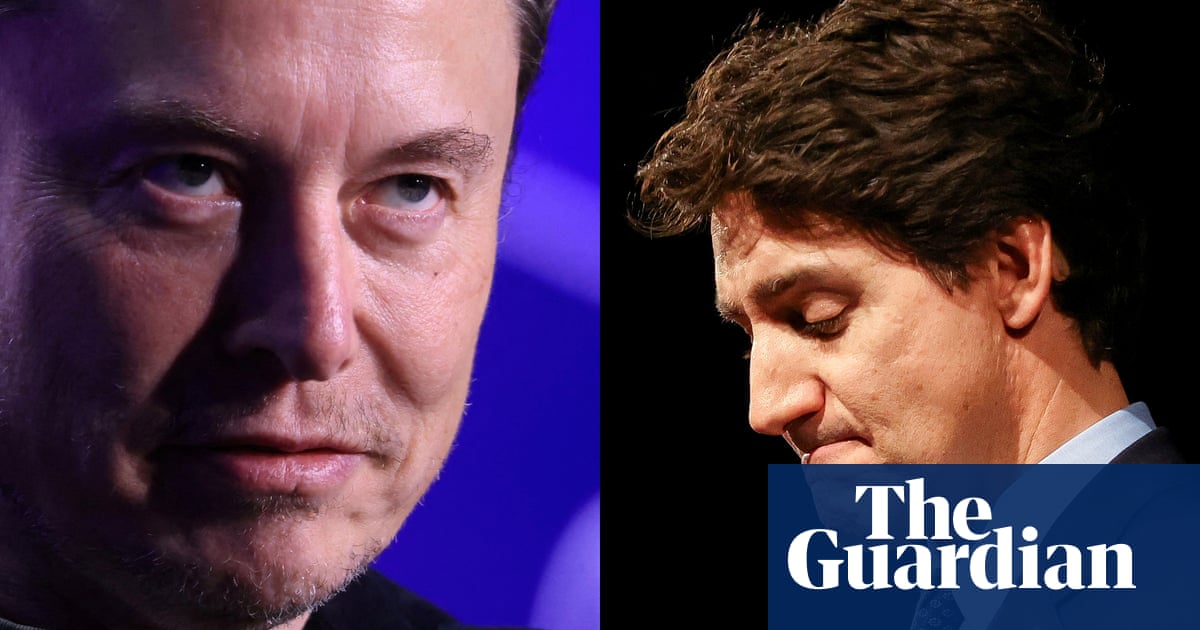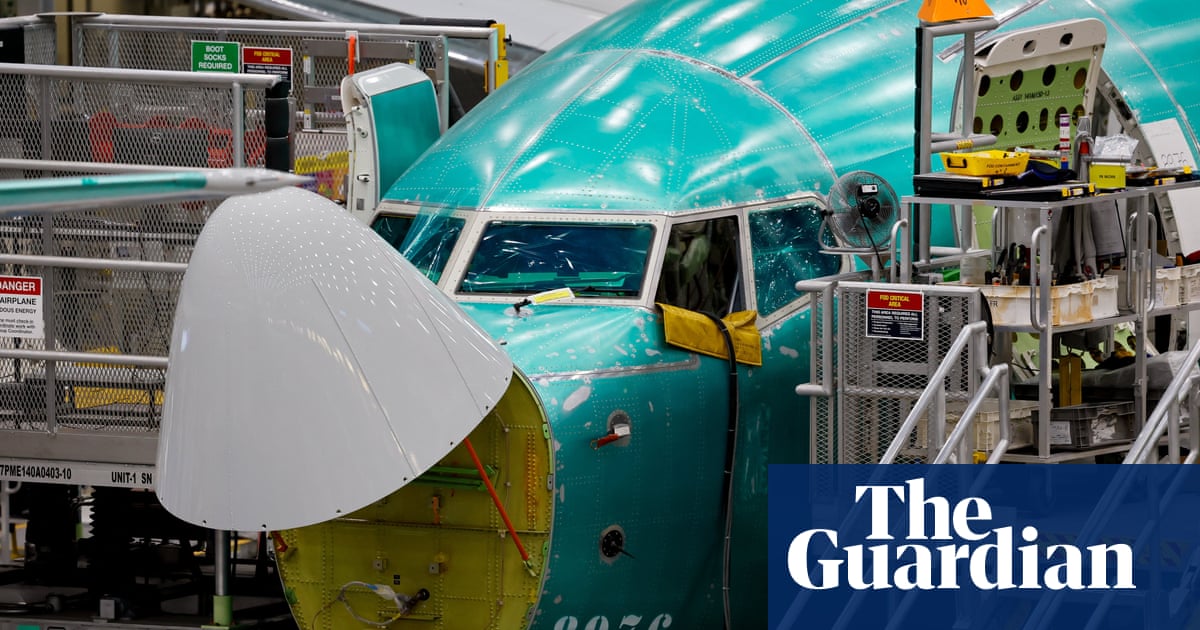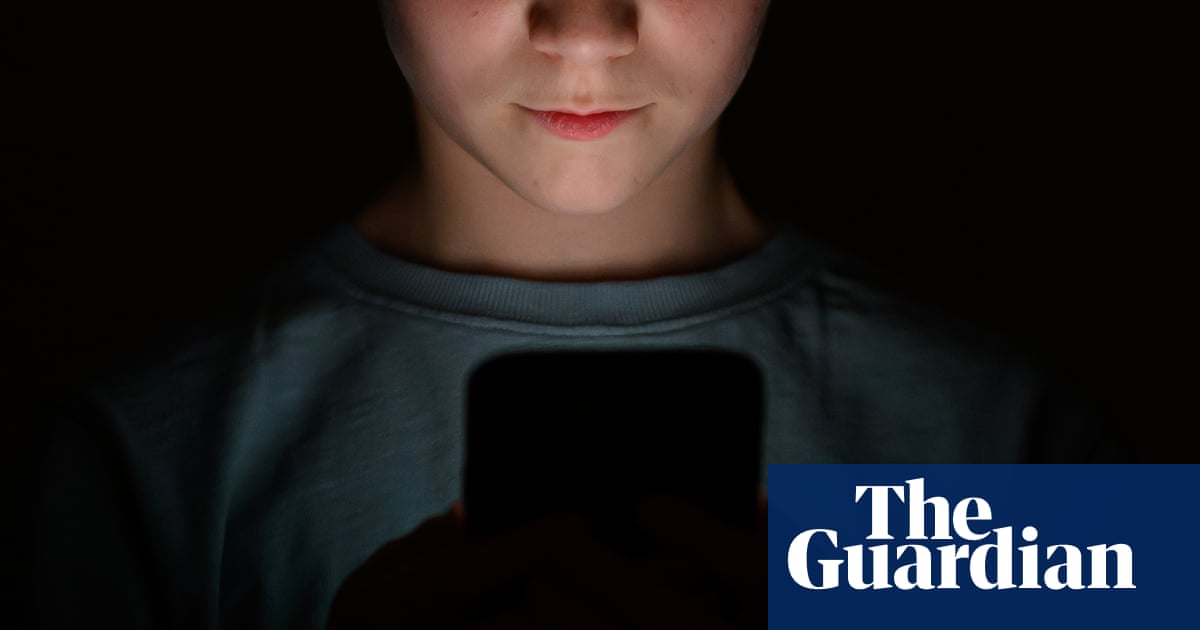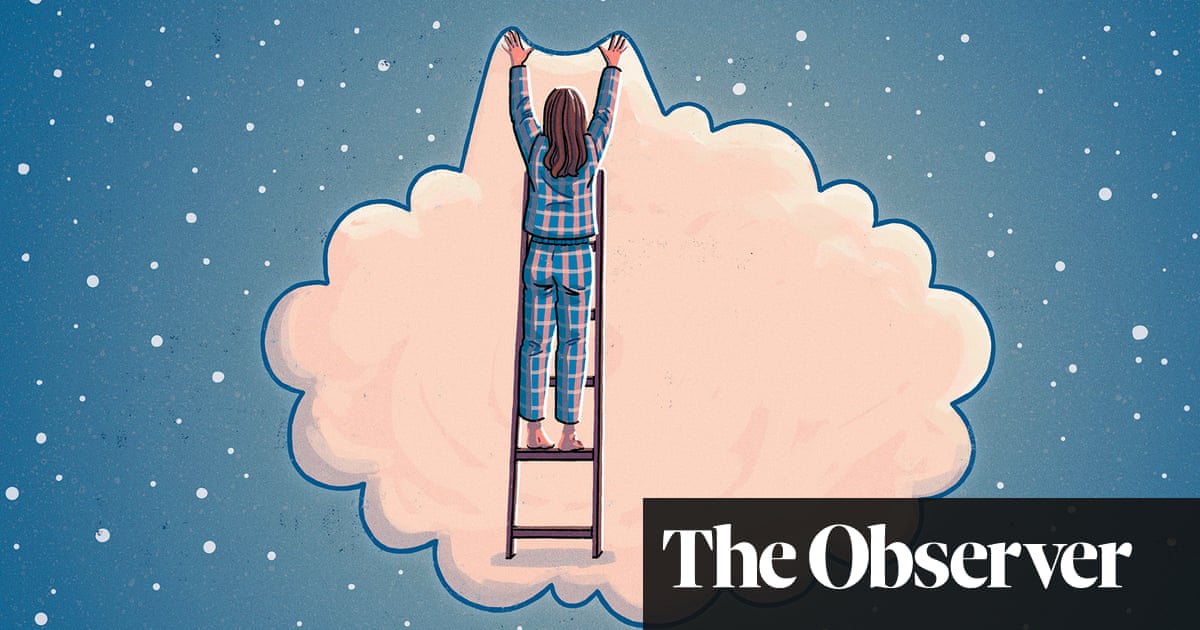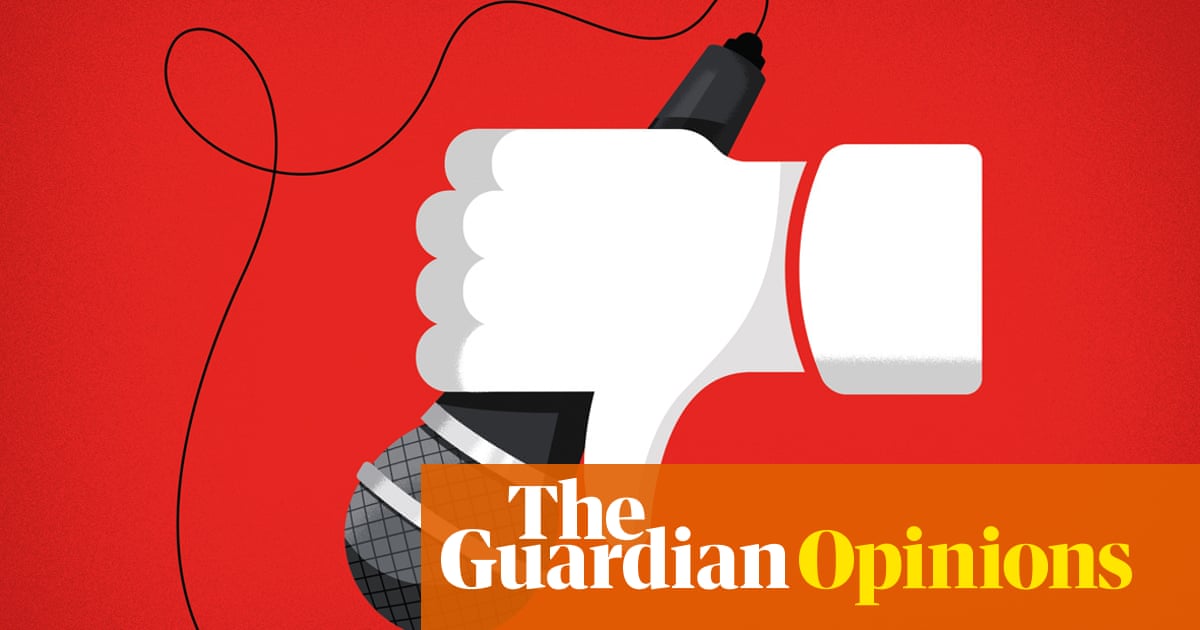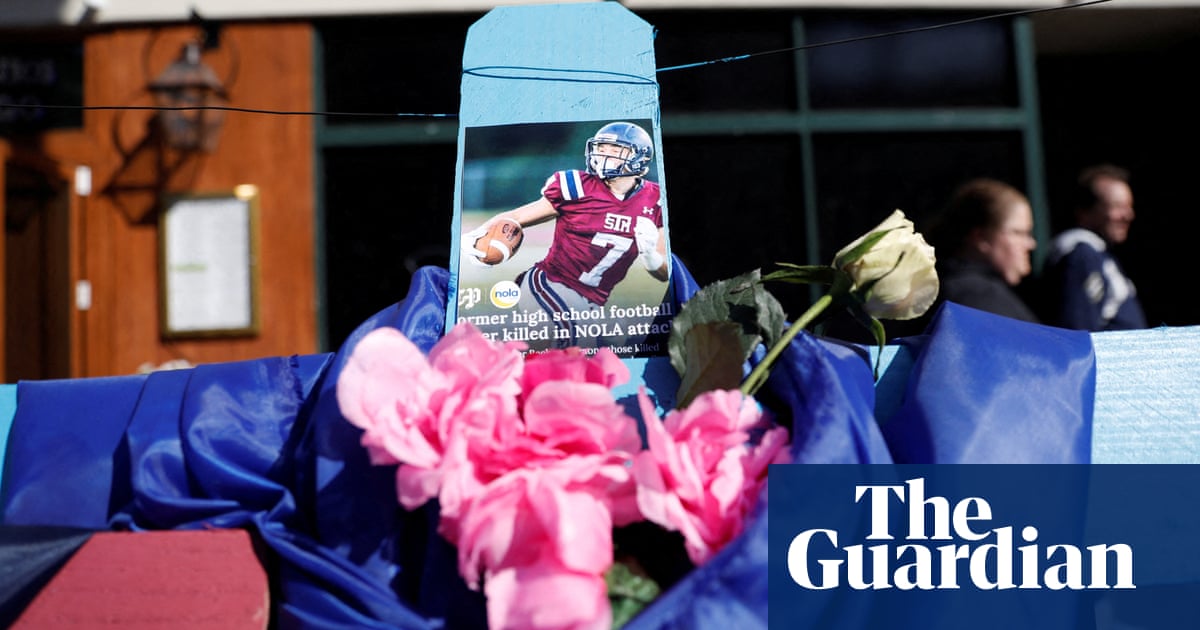“I’m not joking,” says Esme Wren. She has just told me that she often spends her free time watching old Jeremy Paxman interviews with Tony Blair. Why? Back then, “politicians kind of enjoyed it – they felt like if they passed the Paxman test, it made them a better politician. And they answered the questions, they engaged, they felt that was their duty, to be accountable. So although we weren’t delivered senior members of the cabinet every night, we got our fair share.” The editor of Channel 4 News is remembering her time on the BBC’s Newsnight, which she first worked on in 1998 as an intern, and helmed as editor from 2018 to 2021.
Wren is sitting in the cafe-foyer of the ITN building in central London, which houses the broadcast studios of ITV1, ITV London, Channel 4 and Channel 5. Everything about her – posture, expression, hair, outfit – is exquisitely composed and radiates calm. She attributes this to her 13 years at Sky between 2005 and 2018: “When you’re in a rolling news environment, you learn not to react. My adrenaline’s gone. I’m like Andrew,” she says, wryly. Not someone to laugh at her own jokes, she is referring to the 2019 Newsnight interview between Prince Andrew and Emily Maitlis, so dramatic that two TV programmes have been made of it: Prime’s A Very Royal Scandal (in which Wren is played by Lydia Leonard) and Netflix’s Scoop (in which she is played by Romola Garai).
Sorry, I’m dancing around a bit – there is no way Wren would organise her CV other than chronologically – but you get the picture: at 48, she is one of the most influential figures in broadcast current affairs, and has been at the heart of the news for a quarter of a century.
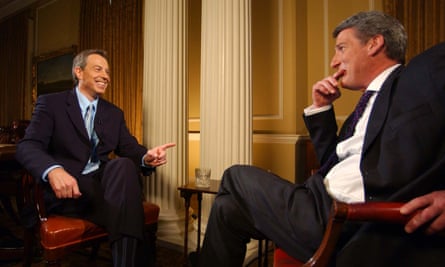
Events fascinate her the way squirrels fascinate sight hounds; instinctively and irresistibly. But whenever she helicopters out for a second, she can see that the media and political landscape has changed. Politicians don’t really do long broadcast interviews any more. “Everything’s five minutes,” she says. “Everything’s a clip. Everything’s tailored to different audiences. There’s no focal point of accountability.” News has fragmented, generations have fragmented with it, everyone getting their information from a different source, of varying trustworthiness. Channel 4 News has seen growth in audience among under-34s, as well as having the most diverse audience (according to Ofcom). It also has a huge following on TikTok (up 70% since last December) and YouTube (audiences have tuned in for a total 12.2m hours this year) and its Instagram account is “still beating the BBC”, Wren says. Still, the actual numbers are pretty small: 16- to 34-year-olds only make up 5.7% of Chanel 4 News’s audience.
Can traditional modes of news gathering – where journalists, preferably specialists, report what they see – survive, in a low-attention-span, high-conflict environment? “Sometimes people dismiss younger audiences,” Wren says, “but they do care about issues, and not just climate change. It’s about housing, it’s about women’s rights. Gaza, that’s where we see the [audience] growth. Ukraine, that’s where we see the growth.” I ask her if she’s making news for the woke generation, and she gives me a “nice try, sunshine” look. “It’s important that we’re in their lives, and in their feeds, without diluting what we are for a digital world.”
Wren tells her life by the news: she mainly remembers her school days because a history teacher gave her a chunk of the Berlin Wall. She grew up in Portsmouth, in a large, tight-knit Catholic family. She and her three sisters were sent to a not particularly academic church-run boarding school, while her two brothers remained at home. “‘The princes,’ as we called them.” She describes her school pretty briskly and not in glowing terms. “Despite what many people think of those in holy orders, there were some good eggs. It toughens you up, gives you a thick skin. I was lucky to have my sisters there.” Then she squares that off with “I spent 13 years there,” and I realise she went when she was just five.
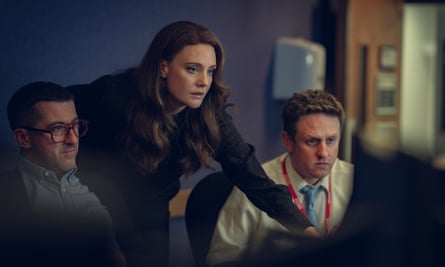
She survived to go on and study at Bristol university, swapping from dentistry to politics, then went to University of California, Los Angeles in 1996 on a Fulbright scholarship to study political science. That was an amazing course, with genuine-article advisers to Bill Clinton coming to guest-lecture and students doing original research projects on the 1996 US presidential election as it happened. “I regretted not being in the UK in 1997, because it felt like a real turning point,” she says. “And in America, Blair’s victory was unnoticed.” She feels fortunate to have arrived back in time for the death of Diana, Princess of Wales. When she describes the signal moments of any era – sudden violent death, outbreaks of war, augurs of fascism – Wren often feels “fortunate” or “privileged” that they happened on her watch (or rather, while she was watching). She never bothers with a preface about things being sad. There’s an unspoken: “Of course it’s sad, now we have to get on and report it.”
So on her first day on Newsnight in 1998, she scored a placement from the programme’s other female editor, Sian Kevill. “I feel so fortunate for the moment in history, the invasion of Kosovo. It was an incredible story. Those first few days were just all hands on deck – nobody even noticed I was new. Half the office hadn’t even clocked I was there.” She was assigned as a researcher to Mark Urban and got her foot in the door: Kirsty Wark was incredible, low-key kind and supportive, which is sort of what you’d expect; Jeremy Paxman was scary and exacting, but not in a mean way, only in the service of creating more scary and exacting journalists. Martha Kearney dragooned her down to work on Westminster politics, that golden age she still goes back to rewatch, when ministers didn’t “slither away from the question”. Wren has the unmistakable stamp of a BBC apprenticeship – which is not to say that only the Beeb’s journalists are truly impartial, but that only they claim to be with such a straight face. “To be honest with you, I genuinely feel I don’t have a political position. I’ve been in journalism for so long, I’ve only ever done public service broadcasting, I’ve never worked anywhere where a stance could be taken. I feel I have trained myself in that way, to genuinely have an open mind about what we witness, without being coloured by any form of judgment.” It’s such a vast, contestable question, whether you can even meaningfully seek the truth without that entailing some form of judgment, but the more serious current affairs people are, the more seriously they cling to this idea of their tabula rasa minds. It’s how they’re made.
In 2005, Wren took six months off to go travelling in South America, which informed her next move. She says she probably wouldn’t have gone to Sky News from the BBC, because breaking news was considered a bit trashy (my word) in those days. Wren was brought in to make an “appointment to view” news show, The Sky Report, to rival Channel 4 News. “We never put a dent on their figures,” she says. “After about a year, they realised it wasn’t worth the money.”
She stayed with Sky for 13 years, where she became head of politics and specialist journalism. The team covered the leaders’ debate for the 2015 election and the Brexit referendum, and built a lineup that would go on to become stars: Beth Rigby, Sophie Ridge, Ed Conway and Faisal Islam. She had two daughters, in 2007 and 2009: “I’ve been single since they were little. I wasn’t intending that, obviously. Things just changed, when they were one and three. It made it easier in some respects. You could set up a home that you felt comfortable in. I wanted to show the girls you could have a career – that’s been really important to me. They’re really interested in politics – they know a lot just by osmosis. And you know, I was only in Isleworth. I wasn’t in Afghanistan.”
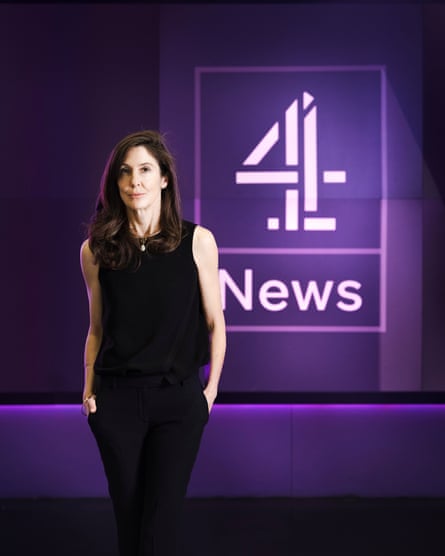
I had my kids at the same time, and while I definitely cannot match Wren’s passion for news, I do remember feeling vexed that so much seemed to happen while I was in soft play – the financial crash, then more crashing, the eurozone crisis, Barack Obama! “Funnily enough, the handover between Blair and Brown was when my first baby was four months old. And I came back in to do it. I just needed to be there to witness it, Blair being clapped out of the Commons, Brown’s speech in Downing Street.” The 00s can’t hold a candle to the 10s, in terms of sheer event, nor the 10s to the 20s. “You feel very privileged to be a journalist at this stage,” Wren says. “It’s a complex world that we live in, and it requires a lot of explanation. With certain stories, we’re very cognisant of what it’s doing to the team, having to live and breathe them. Of course, it beats you down. But for me, it’s a privilege to have the time and space to think deeply about those stories, what’s driving them and how to present them to an audience.”
Wren remembers with satisfaction Michael Gove’s (in my view idiotic) “we’ve all had enough of experts” line that came out on her Sky show during the Brexit referendum. But of the wider job – explaining to the country how incredibly knotty, complex, tedious and time-consuming it would be – she says: “I think all of us have to hold our hands up that we probably didn’t do enough.”
When she went back to Newsnight in 2018, though, Brexit “played perfectly. Our figures were great, it was a story that needed Newsnight to explain it. The timing played well – often the votes were late. And politicians were engaging, they wanted to talk. It was good for business.”
Then, the following year, Andrew: the famous interview, in which Emily Maitlis walked the prince to his own disgrace, seemingly effortlessly. Wren is careful to credit others – Channel 4’s Dispatches, various newspapers – for the scoop: “We hadn’t been chasing the Jeffrey Epstein story. But Newsnight still offered a gold standard, and we exploited that by saying: ‘If you do Newsnight, you won’t have to do any more interviews.’” You can say that again. “We told him it would represent accountability, and he bought it.” Wren, Maitlis and the producer, Sam McAlister, approached it like a police interview, war-gaming every question, trying to guess the palace’s strategy. “Only to find out that they didn’t have one – they just thought he was going to come across as an authentic person. I thought he wanted to do the interview because he wanted to show empathy and sympathy. Epstein’s dead, put it on him. Why wouldn’t he do that? Why would he defend him?”
That episode had so much impact – arguably part of the reason it was dramatised is that it’s had consequences for the reputation of royalty that are still unfolding. But Wren isn’t even especially proud of it. “Journalistically, it wasn’t the hardest thing we’ve ever done.” She went to Channel 4 News in 2021, saying at the time she was interested in pulling in younger and underserved audiences. There, covering the queen’s death was way harder than Prince Andrew, “because what was our journalistic purpose in that story? We observed the public mood, we covered it, we respected it. But we talked a lot about empire, and her reign, the king and the fact that he’d lived this sheltered life, so it was important to show him under pressure, with Pengate – slightly ill-tempered. Channel 4 News is there to be disruptive and take a risk. We were the only news output in that 10 days that led on Ukraine. Because somebody had to say: ‘Enough’s enough.’ There was a lot going on in the world.”
The night before we meet, Channel 4 News has given a full half hour to a deeply sad interview with the son of the evangelical Christian barrister John Smyth, who was also a victim of his abuse. Cathy Newman started that investigation in 2017: “She has not put that down – we stick with stories,” says Wren.
In September, Channel Four News won an International Emmy for Inside Gaza. “We’re very committed to the story: we still do it most days. It is an outrage that we can’t access Gaza. There’s a blockade on journalism. I don’t think there’s ever been a conflict we couldn’t access. Myanmar, Syria, we’ve always been on the ground. So we have a network of Palestinian journalists, who are putting themselves in horrific danger. We haven’t shied away from the scale of the human tragedy, the loss, and the accountability around that.” It’s exactly the approach you’d expect from an editor, ever since public service news was invented: it’s unsettling that, in 2024, Esme Wren sounds quite unusual.

.png) 1 month ago
11
1 month ago
11


